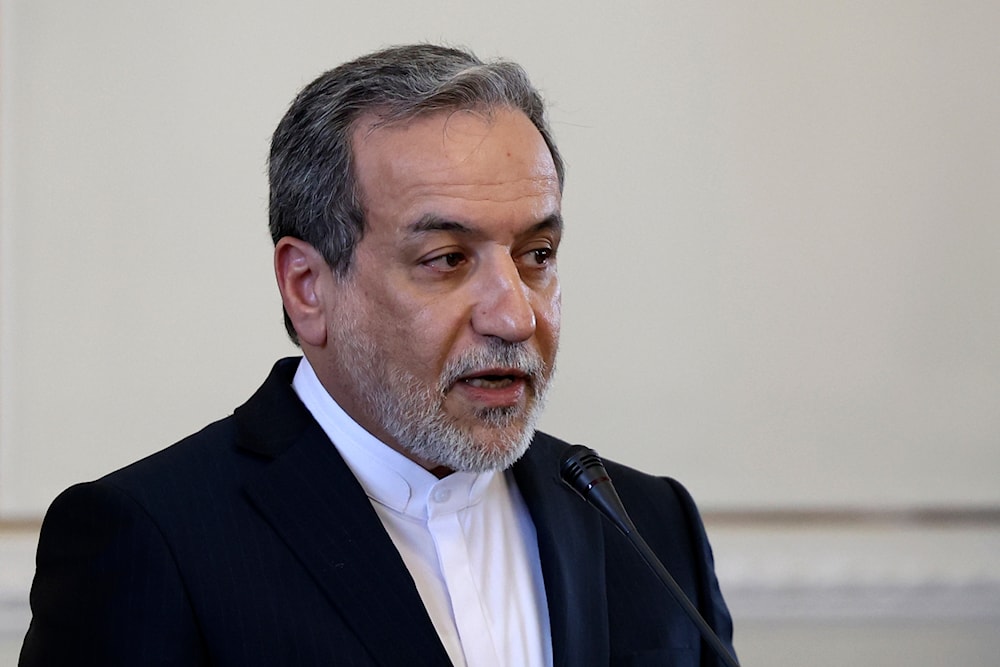Iran FM: Trump’s nuclear talks letter was more threat than offer
Iranian Foreign Minister Abbas Araghchi says that Iran is carefully reviewing Trump’s letter and will respond "in the coming days”.
-
 Iranian Foreign Minister Abbas Araghchi speaks in a joint press conference with his Russian counterpart Sergey Lavrov, in Tehran, Iran, on Tuesday, February 25, 2025. (AP)
Iranian Foreign Minister Abbas Araghchi speaks in a joint press conference with his Russian counterpart Sergey Lavrov, in Tehran, Iran, on Tuesday, February 25, 2025. (AP)
Iranian Foreign Minister Abbas Araghchi said on Thursday that a recent letter from US President Donald Trump, calling for renewed nuclear talks, was "actually more of a threat" than an offer, adding that Tehran would issue a response soon.
Speaking to Iranian state television, Araghchi noted that while the letter appeared to present opportunities, its tone was ultimately threatening. He stated that Iran was carefully reviewing its contents and would respond "in the coming days."
On March 7, Trump announced that he had sent a letter to Iranian leader Sayyed Ali Khamenei, proposing negotiations while also warning of possible military action if Tehran refused.
Sayyed Khamenei dismissed the US invitation, saying it was an attempt to "deceive world public opinion" by portraying Washington as open to talks while framing Iran as unwilling.
Iran’s Foreign Ministry has confirmed it will conduct a "thorough assessment" before issuing a formal response. The letter, reportedly delivered by a senior Emirati diplomat on March 12, is still under review.
Araghchi said Tehran's response "will be sent through the appropriate channels," without providing further details.
Citing a US official and other sources, Axios reported on Wednesday that the letter included a "two-month deadline for reaching a new nuclear deal."
The wider context
Since returning to the White House for a second term in January, Trump has reinstated his "maximum pressure" campaign of sanctions against Iran, echoing his strategy from his first presidency. In his initial term, Trump unilaterally withdrew from the 2015 nuclear agreement between Iran and world powers, reimposing sweeping economic sanctions.
Tehran initially continued to comply with the 2015 deal for a year after Washington’s withdrawal but later began scaling back its commitments. Brief attempts to revive the agreement under Joe Biden’s administration failed to yield results.
Iran has consistently ruled out direct negotiations with the US while sanctions remain in place. Araghchi recently reaffirmed this stance, stating that Iran "definitely will not negotiate directly while facing pressure, threats, and increased sanctions."
After reclaiming the presidency in January, Trump reinstated his "maximum pressure" policy, similar to his first term.
Initially, Iran continued to abide by the nuclear agreement for a year following the US exit but later scaled back its commitments. Although the Biden administration stated publically it wanted to revive the deal, negotiations stalled, leaving Iran unwilling to engage while sanctions remain in place.
Read more: Pezeshkian rules out US talks, tells Trump 'Do what you want'

 3 Min Read
3 Min Read








